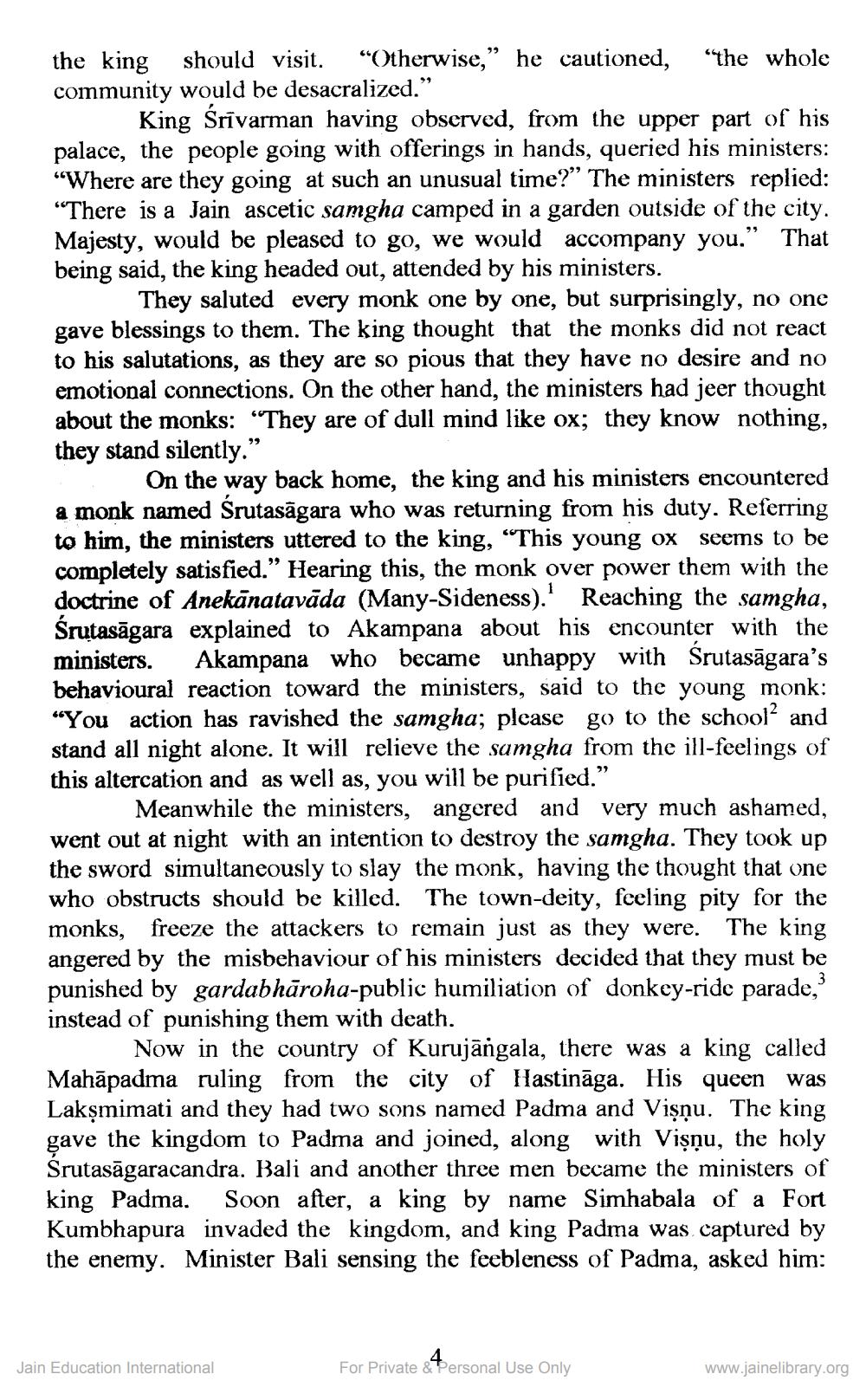________________
the king should visit. “Otherwise,” he cautioned, "the whole community would be desacralized.”
King Srīvarman having observed, from the upper part of his palace, the people going with offerings in hands, queried his ministers: “Where are they going at such an unusual time?” The ministers replied: “There is a Jain ascetic samgha camped in a garden outside of the city. Majesty, would be pleased to go, we would accompany you.” That being said, the king headed out, attended by his ministers.
They saluted every monk one by one, but surprisingly, no one gave blessings to them. The king thought that the monks did not react to his salutations, as they are so pious that they have no desire and no emotional connections. On the other hand, the ministers had jeer thought about the monks: “They are of dull mind like ox; they know nothing, they stand silently."
On the way back home, the king and his ministers encountered a monk named Srutasāgara who was returning from his duty. Referring to him, the ministers uttered to the king, “This young ox seems to be completely satisfied." Hearing this, the monk over power them with the doctrine of Anekānatavāda (Many-Sideness). Reaching the samgha, Srutasāgara explained to Akampana about his encounter with the ministers. Akampana who became unhappy with Srutasāgara's behavioural reaction toward the ministers, said to the young monk: “You action has ravished the samgha; please go to the school? and stand all night alone. It will relieve the samgha from the ill-feelings of this altercation and as well as, you will be purified.”
Meanwhile the ministers, angered and very much ashamed, went out at night with an intention to destroy the samgha. They took up the sword simultaneously to slay the monk, having the thought that one who obstructs should be killed. The town-deity, feeling pity for the monks, freeze the attackers to remain just as they were. The king angered by the misbehaviour of his ministers decided that they must be punished by gardabhāroha-public humiliation of donkey-ride parade, instead of punishing them with death.
Now in the country of Kurujāngala, there was a king called Mahāpadma ruling from the city of Hastināga. His queen was Lakşmimati and they had two sons named Padma and Vişņu. The king gave the kingdom to Padma and joined, along with Vişņu, the holy Śrutasāgaracandra. Bali and another three men became the ministers of king Padma. Soon after, a king by name Simhabala of a Fort Kumbhapura invaded the kingdom, and king Padma was captured by the enemy. Minister Bali sensing the feebleness of Padma, asked him:
Jain Education International
For Private & Personal Use Only
www.jainelibrary.org




